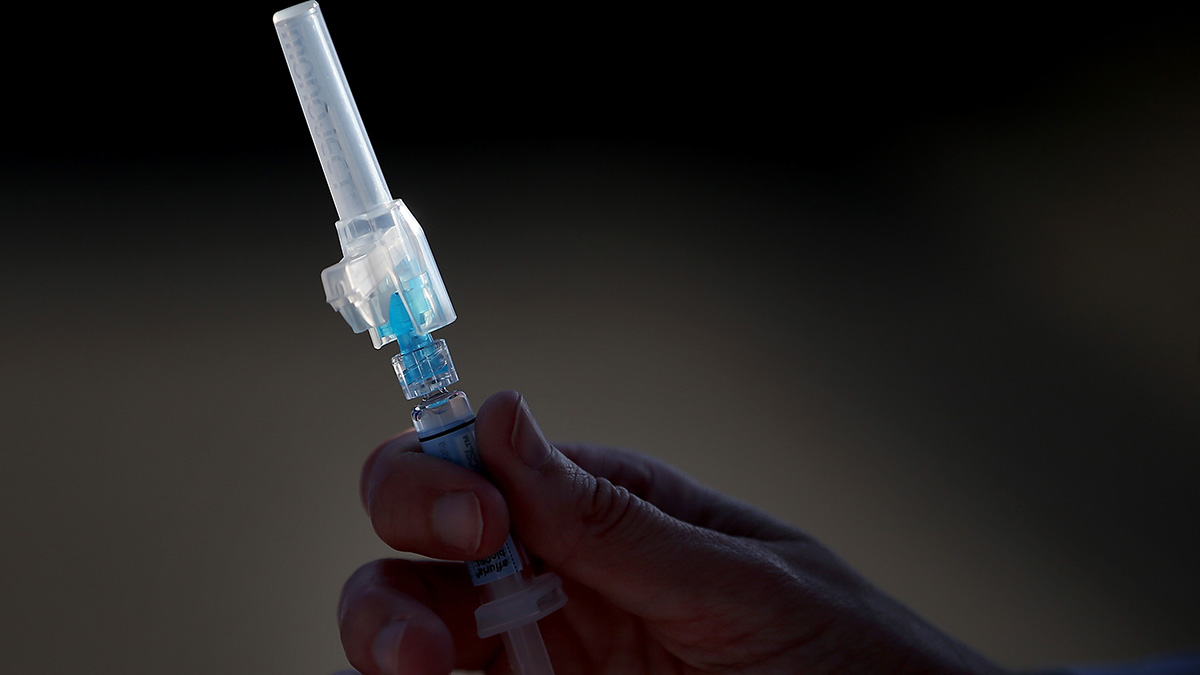A federal agency is trying to cut compensation for thousands of people injured by vaccines, saying one specific injury is creating too many cases.
This week, the Advisory Commission on Childhood Vaccines, appointed to safeguard the federal Vaccine Injury Compensation Program, voted to oppose the idea. But the Department of Health and Human Services, which manages the VICP, could make the change anyway.
An HHS spokesperson has not responded to numerous questions from the News4 I-Team about how the final decision will be made or how the change would be implemented. At a virtual hearing Monday scheduled for HHS to provide scientific evidence supporting its recommendation, no one from the agency showed up.
"It's extremely frustrating," said Commission member John Howie. "Because it makes you think, ya know, 'What are we doing here?'"
Howie asked HHS to present evidence to show why a shoulder injury caused by incorrectly given shots should be removed as an approved injury for payouts in the program.
"Why is nobody here to explain it to us? Why are we going to restrict the rights of people to be compensated based on really nothing, no evidence, nothing?" Howie said.
Fifteen others did show up to the virtual meeting to present evidence against the proposal. They included doctors, lawyers, pharmacist groups and five patients who have suffered with shoulder injury related to vaccine administration (SIRVA).
Amy Jordan developed SIRVA after a flu shot in December 2017.
"It was too high, and I knew instantly that something was different," said Jordan. "It was excruciating for the first couple of days."
Months later, she was still in agony, which was particularly devastating for the avid rock climber. SIRVA often keep patients from doing simple, everyday tasks like driving or getting dressed. Many are unable to work.
"It was always a constant pain, a throbbing in the background and it's very distracting. It's hard to think when you're in constant pain," said Jordan.
Jordan started a website, www.sirvasurvey.org, to help other victims, since most people have never even heard of the condition. She says elimination of SIRVA as an approved injury in the compensation program would be devastating.
"Even within the medical profession, among orthopedists, it's not well known, and I think trying to go through the normal legal system, people will just be facing this huge uphill battle," said Jordan.
Michael Milmoe agrees. He's now an attorney who represents SIRVA patients but previously spent 30 years as a lawyer for the Department of Justice, handling vaccine cases on behalf of HHS.
In its proposed rule change, the agency alleged SIRVA injuries are only mechanistic and not caused by what's inside the syringe. The agency had no representative present in Monday's meeting to present evidence or defend that position.
But several doctors who participated in the meeting presented scientific evidence to show development of SIRVA depends on both the incorrect administration of the shot and the vaccine antigen itself. That is consistent with evidence used to add SIRVA to the VICP as a pre-approved injury in 2017.
"The medicine hasn't changed; the law hasn't changed. The only thing that's changed is there's too many cases," Milmoe said.
In 2018, the News4 I-Team first revealed that SIRVA had become the leading cause of vaccine injuries. Now, it's up to 60% of all the new cases filed.
In a letter released this week, the DOJ cited that reporting — and a 10-month case backlog — as one justification for the proposed change. But Milmoe says that's a flawed interpretation.
"The answer is not to cut off the people who are suffering legitimate vaccine injuries. The solution is to try to educate the administrators to give the shots better," Milmoe said.
The I-Team exposed that the shot-givers who cause SIRVA injuries are never even told they injured someone; the federal program takes on the liability for them. Milmoe says removing that protection would discourage them from offering vaccines at all and worsen the vaccine court's backlog by removing the SIRVA fast-track.
"I think that's outrageous to take away people's right, who have a legitimate vaccine injury and to tell them that they are not entitled to compensation just because there's too much work for government employees," Milmoe said.
A DOJ spokesperson said no one from the agency was available to answer questions about the proposed change.
Reported by Jodie Fleischer, produced by Rick Yarborough, and shot and edited by Jeff Piper.



